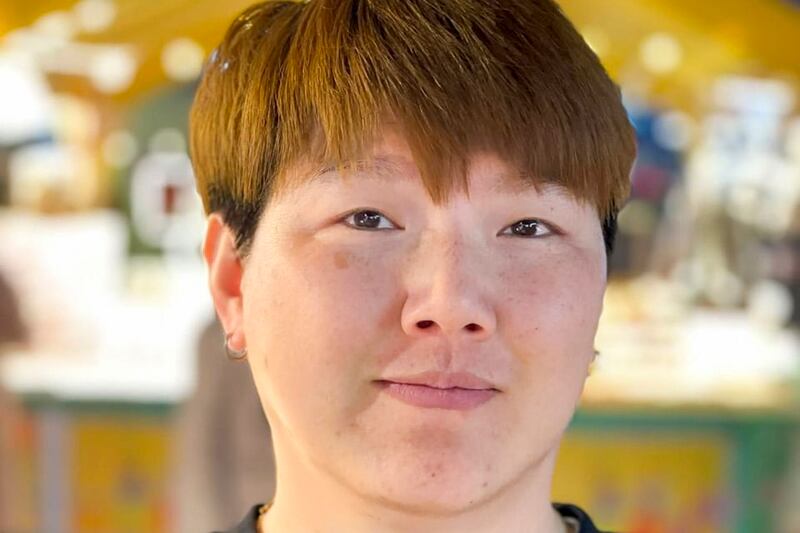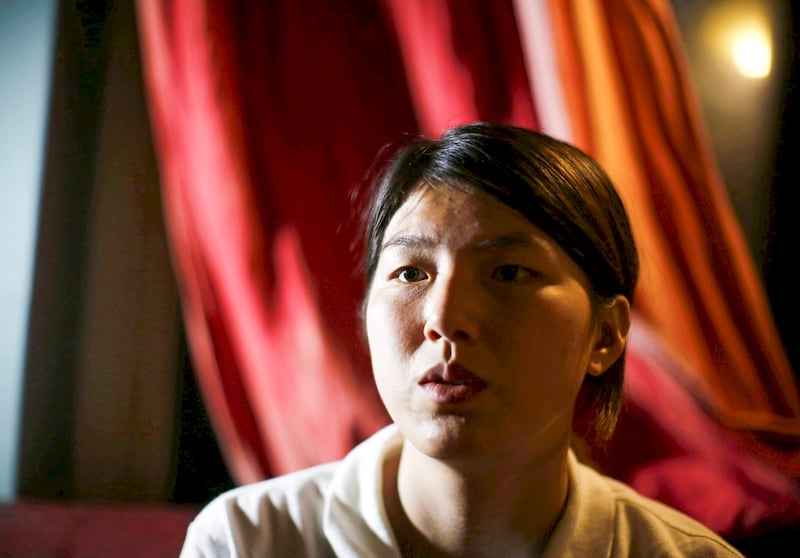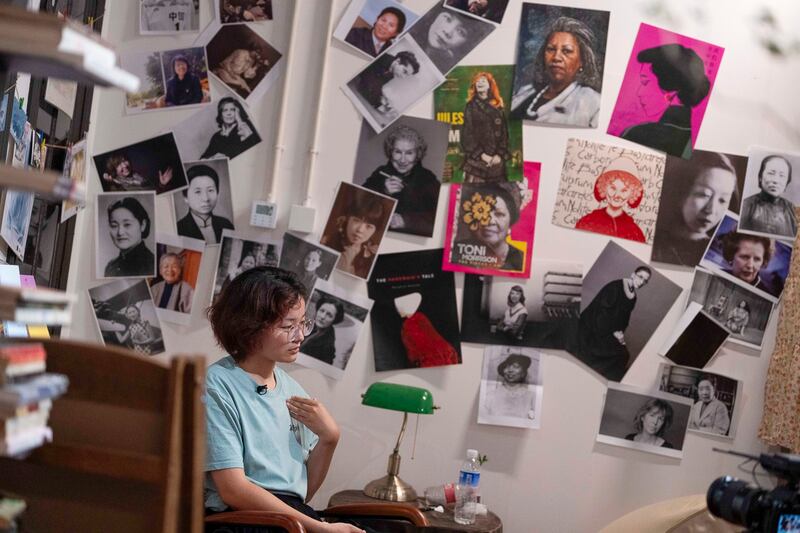The firing of a professor at Beijing's Renmin University this month after allegations of sexual harassment from one of his PhD students recently went viral on Chinese social media, sparking shock and outrage in some quarters.
"I am Wang Di, and I reported my supervisor Professor Wang Guiyuan, the former party secretary, vice president and doctoral supervisor of the School of Liberal Arts at Renmin University, for sexually harassing and forcibly molesting me and asking me to have sex with him, using my real name," the woman said in a video that exploded onto social media on July 22, garnering millions of likes and attracting large numbers of supportive comments.
Wang, who held up her ID card to identify herself and also posted audio clips in which her supervisor allegedly tried to kiss her, continued: "I refused, and so he retaliated by threatening not to allow me to graduate."
China has seen a number of high-profile allegations of sexual harassment as part of its #MeToo movement in recent years, but the country's feminists say the victims don't always get the response they were hoping for, and can face retaliation from those who have power over them.

Last month, a court in the southern city of Guangzhou handed down a five-year jail term to Sophia Huang for "incitement to subvert state power" after she assisted in the investigation and reporting of a number of high-profile sexual harassment allegations against professors at Peking University, Wuhan University of Technology, Henan University and Sun Yat-sen University in Guangzhou.
In Wang Di’s case, Renmin University fired Wang Guiyuan on July 23, and police in Beijing's Haidian district said they were investigating, without giving further details. But this response only came after she went public, and after attempts to complain to the school had met with no action.
Similar allegations were made soon afterwards by women at universities in Shaanxi and Shandong.
Depressingly common behavior
Young Chinese women with recent experience of higher education in the country told RFA Mandarin that the news came as no great surprise to them, saying sexually inappropriate behavior from mostly male doctoral supervisors is depressingly common.
"This kind of thing is shocking to people who don't move in these circles, but for us, it is not particularly," a young Chinese master's student who gave only the nickname Tingting for fear of reprisals told RFA Mandarin in a recent interview.
"I have heard of [professors] sending harassing text messages to female students, or inviting them out to dinner several times, and promising to help them get published, or asking what they want in return," she said. "It's wrong to manipulate women in this way, and it's certainly not normal."
The situation Wang Di described is a nightmare scenario for many young women navigating higher education in China, according to Tingting, because doctoral and research students are totally dependent on their supervisor for advancement and even for the degree they are studying for.
"Tutors have absolute control over the students under them, including their lives, their studies, and their future," she said. "If your teacher decides they want something from you, you have no way to resist."

She said complaints are often not taken seriously, because faculty typically back each other up, and sometimes retaliate against the person making the complaint.
"If you want to stay in school, you just have to put up with it, because there's nowhere you can go to complain or resolve it," Tingting said.
A university graduate who gave only the nickname Yuyu for fear of reprisals said that while #MeToo incidents aren't unique to China, there are fewer mechanisms for complaint or redress.
She said Wang Di had only taken to social media more than a year after complaining, then waiting in vain for something to happen.
"This woman had already complained a year or even two years beforehand, but didn't get any kind of useful response," Yuyu said. "In the end she had to pay a huge price and expose his behavior, putting a huge amount of pressure on the school and the party to act as soon as possible."
"But [complaining] will ultimately put the victim in a disadvantageous position," she said.
Humiliated by police
The #MeToo movement has been widely known in Chinese universities for nearly a decade now, and young women are more likely to try to protect themselves, Yuyu said.
"But you can't eliminate this problem by relying on young women to protect themselves," she said. "There should be people in schools and education bureaus who are responsible for handling such cases."
"It shouldn't just be on a case-by-case basis."
Take a moment to read more
[ China hands 5-year jail term to feminist journalist Sophia HuangOpens in new window ]
[ China jails feminist labor activist Li Qiaochu for ‘subversion’Opens in new window ]
[ Faced with decline in marriages, Xi calls on women to build familiesOpens in new window ]
A recent graduate who gave only the nickname Xiao Min for fear of reprisals said the fear of stigma and victim-blaming is also a huge deterrent for women wishing to report such cases.
"First of all, Me Too is difficult to talk about, because there may also be some kind of stigmatization, because there is a power relationship between the victim and the perpetrator," Xiao Min said.
"[The perpetrator] can always claim it was mutual, but it's hard to provide clear evidence for that kind of thing and hard to win this kind of case," she said, saying that women are also up against a male-dominated society in China that doesn't view whistleblowers too kindly, and often takes the man's side in such disputes.
Universities aren't the only place where power relationships can put women in difficulty, she said, citing workplaces as another area where sexual harassment is rife in China.

Shi Minglei, wife of recently released rights activist Cheng Yuan, said she was sexually harassed by someone who was helping her campaign for her husband's release.
"This had a huge impact on me, and made me feel utterly desperate," Shi told RFA. "Under the political repression of that regime, you are particularly isolated and helpless, and you need your community to support you."
"I was very vulnerable," she said.
Veteran feminist activist Li Maizi said power imbalances are what drives the kind of sexual harassment reported by Wang Di and Shi Minglei, yet the burden of proof lies entirely with the victim in China.
"A lot of people don't want to go to the police, because if you do, you will be humiliated by them," Li said, adding that while China does have legislation protecting women from sexual harassment, it's rarely followed in practice.
"The police don't protect victims," she said. "A lot of times, even if you call them, they won't care about it, because [they] are a male-dominated institution that has no motivation to cooperate," she said.
And there could be other consequences for making such accusations.
"In the worst-case scenario, you could get expelled from your school or get transferred in your job," Li said.
Translated by Luisetta Mudie.

